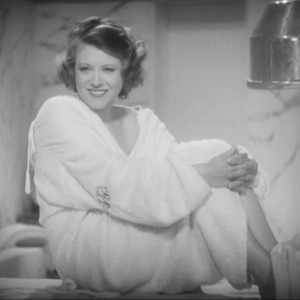
Given its plot synopsis, I expected Female to be shocking: a promiscuous executive casually sleeps with men until she finds the right guy. But I didn’t expect to gasp at its daring. A few of the heroine’s typical comments:
Falling in love: “To me, a woman in love is a pathetic spectacle. She’s either so miserable that she wants to die, or she’s so happy you want to die.”
Marriage: “No thanks, not me. You know a long time ago I decided to travel the same open road that men travel, so I treat men exactly the way they’ve always treated women.”
Husbands: “Of course, I know for some women, men are a household necessity. Myself, I’d rather have a canary.”
Then there’s a typical night. She…
1. Spots a handsome employee, feigns interest in his ideas, and asks him to come over to her house that night to discuss them.
2. Discourages business talk with flirtation, as when she says, “Are you naturally enthusiastic?” to a new hire, throwing a pillow onto a plush rug with a suggestive look.
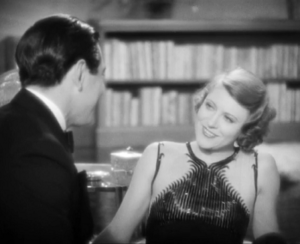
3. Orders vodka from her butler, who informs the rest of the staff of the Catherine the Great custom: serving it to soldiers “to fortify their courage.”
4. Exercises with vigor the next morning, clearly energized by the tryst, and comes up with new ideas for the business.
5. Rejects the romantic overtures of her one-night stand, annoyed by his flowers, then offers him a bonus as a kiss-off. She doesn’t want to deal with the moodiness of emotional men at work. (Women, how many times have films suggested this about us?)
At first, I thought the movie would be like Trainwreck, as Alison (Ruth Chatterton) certainly displays the same level of disinterest in building a romance with her one-night stands and blows off a guy after he calls her “ethereal” and otherwise indicates their lack of sexual heat:
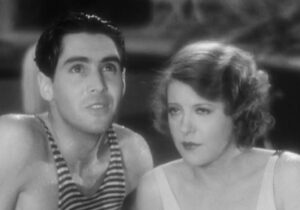
Amy and Alison have an impressive list of conquests, and not only express disinterest in matrimony and kids for themselves, but for others, as when Alison can’t be bothered to remember her friend’s husband’s name, or how many kids she has–much like Amy’s (Amy Schumer’s) scene at her sister’s shower. Both heroines are funny and mostly likable, as when Alison worries about her chauffeur, who has taken a punch in her honor: “Now listen, Puggy, things people say about me don’t bother me,” she says with a lovely smile. “Thanks just the same.”
But in terms of power–and what they do with it–there’s no comparison. After one-night stands fueled by liquor, Amy, hungover, struggles to get through the day.
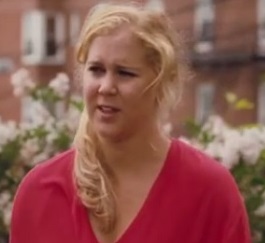
Alison, in contrast, looks alert, pretty, and pleased with herself, and does a brilliant job at work afterward. The word “trainwreck” is about as far from Alison Drake as a term can be.
Like her more direct heir, Samantha Jones, Alison practically bristles with authority and confidence, but unlike Samantha, she has a whole auto factory full of employees.
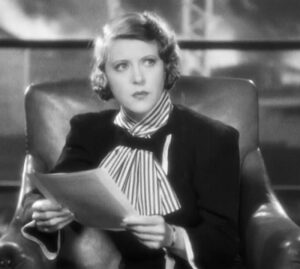
One criticism of Sex & the City was that it never took the work as seriously as the characters’ personal lives, which made it less feminist than it could have been. Here, the heroine has no chance for tight friendships, but finds her work thrilling: “Oh, but I love it: the battling, the excitement; I don’t think I could do without it now.” I soon found myself as interested in the business–such as her decision to go with automatic transmission–as in the flings, not something I expected to experience with a romantic comedy.
Like Samantha, Alison wants to sleeps with her hot employees–only in Alison’s case, she does. (Samantha waits to fires hers first).
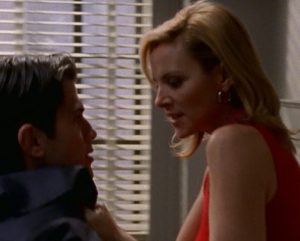
In fact, Alison has sex with so many of them that there are a flood of bonuses on the company payroll, like some kind of stud fee. Her leer at a new designer is as hilarious to witness as Samantha’s undressing looks. And as with Samantha, her vulnerabilities are evident–in her case, a fear that men are angling for her money rather than her personality or body (either would be fine).
While it’s easy to admire Alison’s moxie, she’s guilty of sexual harassment throughout the story, as when her secretary shows her too much affection after their affair, and she transfers him to Montreal. Promptly afterward, this lovesick conquest watches the latest one-night stand leave her office and calls, “I’ll see you in Montreal.” When Alison falls for Jim (George Brent), mainly because he’s hard to get, his anger at her regular nightly ploy earns our admiration; he won’t sleep with her to keep his job, he retorts.
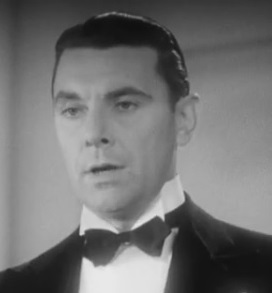
While she initially decides to fire Jim’s secretary, assuming the two are involved, and then plans to overload her with work, she quickly reconsiders, deciding not to be petty. While she’s still in murky moral territory due to her liaisons with subordinates, she doesn’t reach full anti-villain status, since she won’t fire someone for turning her down or stealing her guy. Still, it’s hard to forget that shady transfer…and how much she reminds us of Don Draper with his secretaries on Mad Men.
I stopped the film multiple times as the end neared, fearful about whatever sexist cliché it was headed for. This character was simply too complex, and Chatterton too wonderful in the role, for me to watch some reductive conclusion.
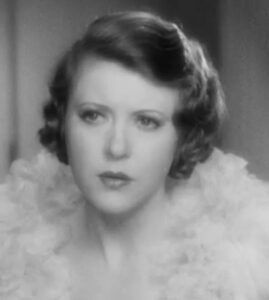
I was right to be scared (though I feared it would be worse). Oddly, Jim, till then annoying in spite of his rebellion, demonstrated unexpected feminist leanings near the close. Too bad the screenwriters and director chickened out and tacked on totally unbelievable concluding lines.
Despite its shock value and fascinating lead, the film hasn’t reached the popularity or accessibility today it deserves. I could only locate it in DVD form on Netflix, and went for the free month trial of streaming with Warner Archive instead. Go to the effort; it’s worth it.

Don Draper doesn’t very often expose his thoughts on women, so in terns of the witty and flirtatious comments, she’s more like Roger from Mad Men! Roger: “Have a drink. It’ll make me look younger.” But seriously, she sounds like the forerunner for Samantha.
You know, I think you’re right! She’s more like Roger than Don (she’s too likable really to be Don). But Samantha is probably the closest:)
I can’t believe I’ve never heard of this movie! It sounds fascinating. I love that weird little moment in the early to mid thirties when the gender roles in movies were briefly complicated and sophisticated. The fact that women were portrayed as having real careers and power did reflect the collapse of men’s jobs because of the Depression, but what I like is that filmmakers got creative and took a range of approaches to the topic. We get films from the period that decry “pushy” women, but we also get movies that glamorize the fast-talking career women. Like Hildy in His Girl Friday, or the professional sharpshooter mother in Hitchcock’s original Man Who Knew Too Much. (It’s like she’s from a totally different universe than Doris Day’s version of the same character 25 years later.) –From your friend who watches too many Korean soap operas (which sometimes spend a lot of time on women’s careers–the best hero is the hero who can help the heroine figure out how to balance the accounts/win the big contract/open her new fusion restaurant)
Thank you for commenting!:) I need to watch some of those dramas now that I’ve gotten through Orphan Black, per our mutual friend’s rec. (I also rewatched Fletch.) This movie is so much more fascinating than I can capture. And you’re right–that sharpshooter is one of my favorite Hitchcock characters. I love that version of the film, which is so scary & good, and hate the Doris Day version, which gets on my nerves. The pre-Code movies are always fun–I recommend http://pre-code.com for great input on them.